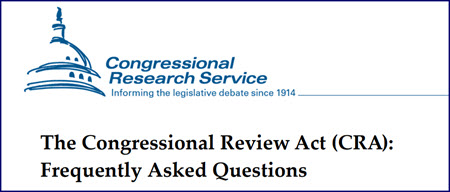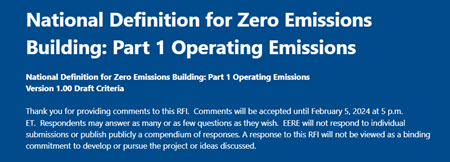
Congress faces a looming set of government shutdown deadlines early in the New Year as pressure builds on lawmakers to balance government funding with increased emergency aid requests for the southern border, Ukraine, and Israel. A stopgap bill passed late last year established the first funding deadline on Jan. 19, which could shutter parts of the government—while the second deadline on Feb. 2 could bring a total shutdown, including military operations. (Punchbowl News, Jan. 5 | The Hill, Jan. 1 | Politico, Jan. 2 and Dec. 28)
Tax Legislation
Congressional Review Act

A CRA initiative could impact Biden administration regulations completed this summer, but an exact date for when new rules would be clear of the CRA “lookback” is unknown at this time. (PoliticoPro, Jan. 2)
# # #

The Biden administration on Wednesday issued a draft definition for the term “Zero Emissions Buildings.” The voluntary guideline would apply to non-federal, existing buildings and new construction. The U.S. Department of Energy (DOE) requested comments by Feb. 5 from industry and other stakeholders about Part 1 of the draft “ZEB” language, which is focused on “zero operating emissions.” (DOE announcement | National Definition Draft Criteria | Comments Form)
Draft Criteria
National ZEB Definition

Executive branch officials from the White House, federal agencies, and leading non-governmental organizations will discuss the national ZEB definition on Jan. 24 during sessions on sustainability issues at The Roundtable’s all-member 2024 State of the Industry Meeting.
# # #